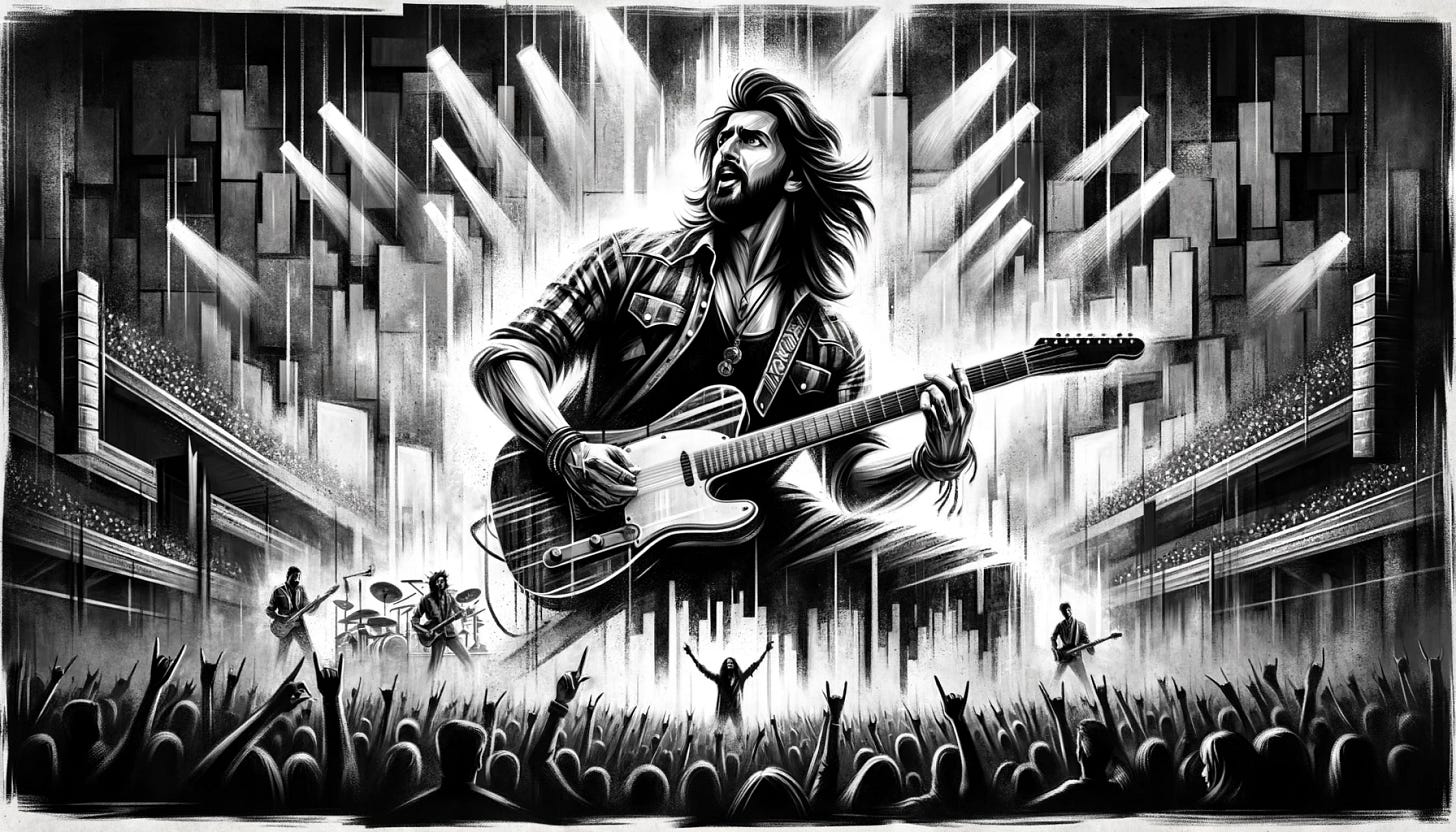Rockstar / Reversal
Exploring vicissitudes of the lead characters in the movie 'Rockstar'
Note: I am writing this post with the assumption that you’ve already seen the movie Rockstar. Or that you don’t give a shit about spoilers.
I was introduced to the Imitiaz Ali universe of movies via Jab We Met. I think the movie inspired idiotic girls to be proud of their chaotic persona.
Though I felt that it was a cute movie, it did not inspire me to watch other movies of this director.
Then came Chamkila on Netflix. I was super impressed. I have written a post about the movie on my blog.
Chamkila did not immediately inspire me to watch Tamasha. It was a random decision. But I liked the movie because the lead character in the movie was a product manager (which is my profession).
However, the first true attempt to explore Imitiaz Ali resulted in watching Rockstar twice on the same day. Once at home and another time in the theatre.
I ended up live-tweeting my commentary on the movie and later wrote this post to structure my chaotic thoughts. You can find my tweet thread here.
TLDR version
The premise of the movie is—pain drives artistic brilliance. This is the thought that drives the lead actor, Janardhan Jhakad (aka Jordan/JJ) to seek some sort of manufactured pain.
The dude pursues a popular girl, Heer Kaur, on the campus and makes a pithy attempt at falling in “love” with her.
As fate would have it, this random thought draws both characters onto a very destructive path with terrible consequences.
The heroine lands in depression after getting married to a rich dude who resides in Prague. Her reunion with Jordan eventually exposes her trauma bond to him, and her dual personalities which are irreconcilable.
On the other hand, vulnerable and love-starved Jordan loses his mind due to his obsession with Heer. In the process, Jordan reaches peak fame while he continues to self-destruct from an emotional POV.
The Forbidden Fruit
The female protagonist, Heer, appears sorted on the outside but harbours internal chaos that is hidden from the entire world. When she meets Jordan, this is fully unleashed. This exposes the double life led by a lady of high social standing.
On one hand, she wishes to enjoy marital bliss in a wealthy household. At the same time, she wishes to have a romantic relationship with Jordan. This is not explicitly stated. But it is obvious from her actions.
Heer wants to have the cake and eat it too. Her periodic outbursts against Jordan are just a way to hide her flaws. Her physical weakness or illness is either caused by her moral dilemma or worsened by internal conflict.
Throughout the movie, the director touches upon the tempting nature of the “forbidden fruits” of questionable sexual/emotional relations.
The hero's views on wedding guests fantasizing about the bride provoked a strong reaction in me. Is this a normal thought? Or, did the director add it to the script for a comical impact?
The desire of a man to encroach on someone’s marital life or romantic life sounds barbaric and disgusting to my mind.
Overall, the normalisation of extramarital relationships in the name of love, and improving the health of the female lead is a very bad idea.
If Heer is unhappy with her husband, or her husband is not happy with Heer, they should have divorced and sought happiness elsewhere. Of course, rational choices by characters would not have made Rockstar a hit movie.
The Hero's Journey
If you ask me, I would not count Jordan as a hero in the first place. He is a deeply vulnerable and disturbed personality who needs a therapist.
The real heroes are those who can bear grief with dignity and enable people around them to live a happy and fulfilling life.
The real heroes ensure that they don’t worsen the wounds they might have caused inadvertently. They are brave enough to admit to mistakes, look inward and try to be better daily.
Jordan faced rejection at college, at home and in romantic life. Though he attains fame, he draws on the animal spirits of the masses (which might have been hurt by the same forces that damaged the ‘Rockstar’).
The stardom doesn’t bring happiness to Jordan as the character admits to his confidante Khatana Bhai.
Villainisation and Utility
Any Tom, Dick and Harry can be elevated to the status of a hero or a villain by the crowd. The status can shift based on the circumstances and the utilitarian value provided to the crowd by the person in the limelight.
Therefore it becomes very important to do good without the desire for claps. Any performative act will eventually draw bouquets or brickbats.
As long as Jordan’s presence was aiding Heer’s recuperation, he was a hero. But as soon as he got her pregnant and put her life in danger, he turned into a villain.
For others, he is not a human being capable of making errors. He is just a tool to meet their needs.
If Jordan knew that having sex with Heer could put her life in danger, he would have never slept with her.
Even Jordan stops believing that he’s human because of his Rockstar, saviour status. He takes the blame on himself and burns from within. I can understand how this can move the masses and charge them emotionally.
But in reality, I can only see a tragedy.
Key Takeaway
My takeaway from the movie is this —a hero can suddenly turn into a villain and a villain can suddenly turn into a hero. The reversal of fortunes for a wannabe hero can be calamitous as it destroys his/her self-image.
And he/she has zero control over the way the public sees him/her.


